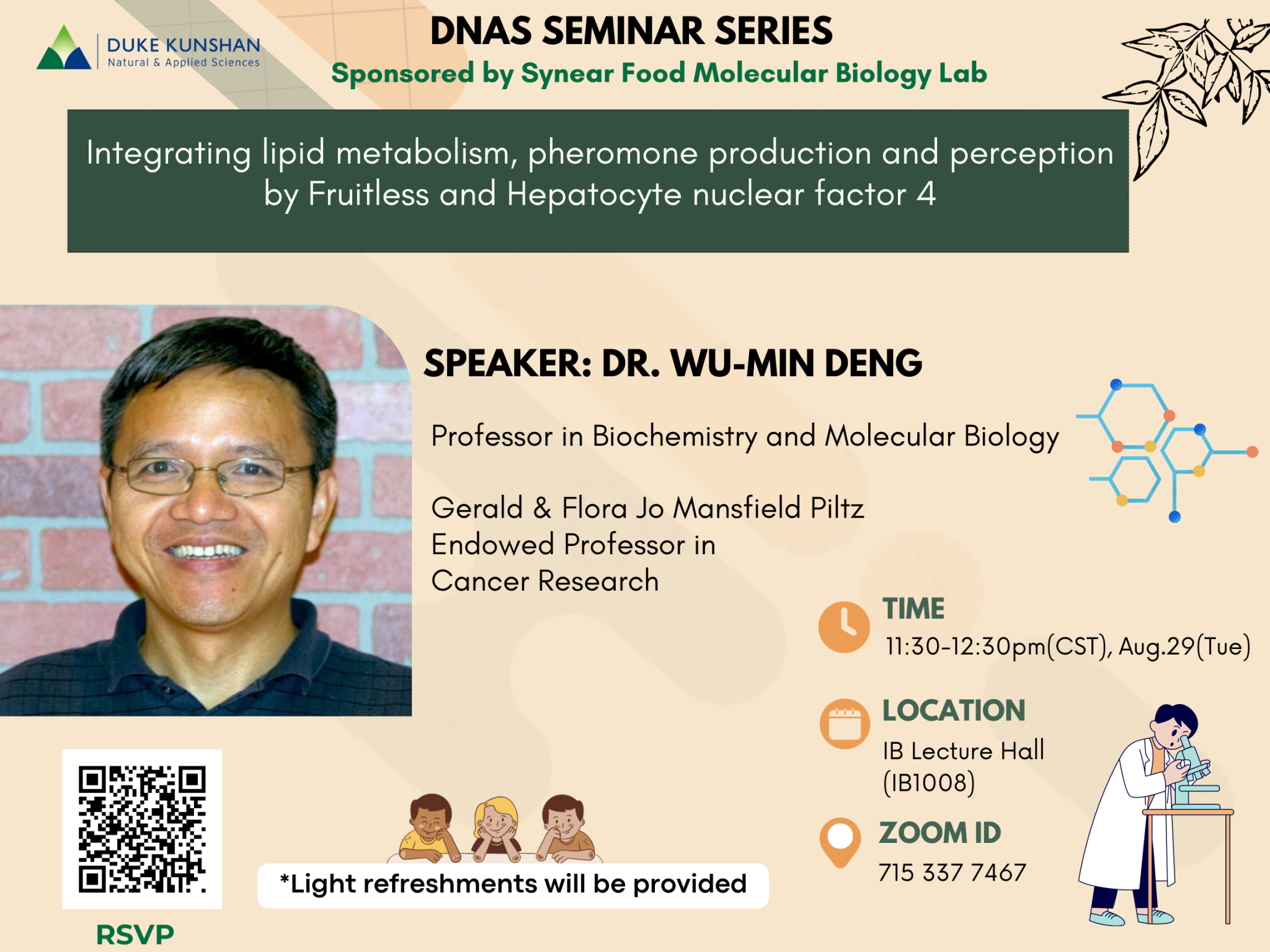Integrating lipid metabolism, pheromone production and perception by Fruitless and Hepatocyte nuclear factor 4
Date & Time
Time: 11:30am-12:30pm (CST), Aug.29
Location: IB Lecture Hall (IB1008)
Zoom ID: 715 337 7467

Speaker:
Wu-Min Deng
Tulane University School of Medicine
https://medicine.tulane.edu/deng-lab
Abstract:
Sexual attraction and perception, governed by separate genetic circuits in different organs, are crucial for mating and reproductive success, yet the mechanisms of how these two aspects are integrated remain unclear. In Drosophila, the male-specific isoform ofFruitless(Fru), FruM, is known as a master neuro-regulator of innate courtship behavior to control perception of sex pheromones in sensory neurons. Here we show that the non-sex specific Fru isoform (FruCOM) is necessary for pheromone biosynthesis in hepatocyte-like oenocytes for sexual attraction. Loss of FruCOM in oenocytes resulted in adults with reduced levels of the cuticular hydrocarbons (CHCs), including sex pheromones, and show altered sexual attraction and reduced cuticular hydrophobicity. We further identify Hepatocyte nuclear factor 4 (Hnf4) as a key target of FruCOM in directing fatty acid conversion to hydrocarbons in adult oenocytes. fru- and Hnf4-depletion disrupts lipid homeostasis, resulting in a novel sex-dimorphic CHC profile, which differs from doublesex- and transformer-dependent sexual dimorphism of the CHC profile. Thus, Fru couples pheromone perception and production in separate organs for precise coordination of chemosensory communication that ensures efficient mating behavior.
BIO:
Wu-Min Deng received his PhD from the University of Edinburgh, Scotland, in 1998, and was a postdoctoral fellow at the University of Washington, Seattle. His earlier work focuses on Notch signaling, Dystroglycan and germline-soma interaction during Drosophila oogenesis. In 2003, he started his independent lab at Florida State University, where his group worked on polyploidy, cell competition and developed models to study tumor initiation and progression in Drosophila. In Fall 2019, his lab moved to Tulane University in New Orleans. Currently, his research focuses on Drosophila models of tumorigenesis, tumor-host interactions, non-professional phagocytes and lipid metabolism, His work has led to novel concepts such as tissue “tumor hot spots”, “compensatory cellular hypertrophy”, and new components and mechanisms in Notch and Hippo signaling. He is a Gerald & Flora Jo Mansfield Piltz Endowed Professor in Cancer Research at Tulane University.
